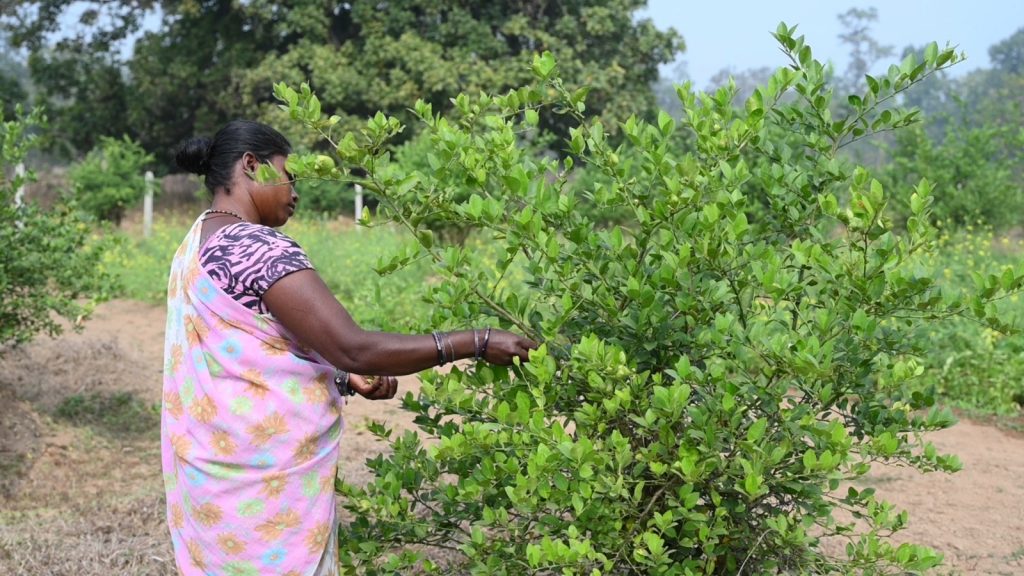Sundargarh: Tribal farmers in Sundargarh district are growing various types of fruits to augment a sustainable source of income. Among the fruits, farmers are cultivating are mangoes, cashew, lemons and even lemon grass. Most of the fruits are being cultivated on land which even a few years back did not yield any product. The farmers are being helped by the Integrated Tribal Development Agency (ITDA). This fruit cultivation programme is operational in nine blocks of this district under the ITDA.
From 2020- 21 to 2022-23, more than 1,170 persons joined this initiative. At present, over 1,900 acres of land is being used for mango, cashew and lemon farming. The latest to make the list is lemon grass which is being cultivated for the first time this year. “I had five acres of fallow and rocky land. I couldn’t grow any crop on it. ITDA officials advised me try mango cultivation. It has been a success. Along with mango I also grow watermelons on my land,” informed Madhusudan Majhi, a tribal farmer of Sahebdera village in Lephripada block. Currently, 794 beneficiaries are involved in mango cultivation on approximately 1,256 acres of land.
Similarly, more than 250 others have cultivated cashew on 450 acres, while 90 tribal farmers are growing lemon on 140 acres. Lemon grass is being grown by 40 farmers on 60 acres. “Fruit cultivation is one of the long-term programmes of ITDA Sundargarh. It has been envisioned to financially empower tribal farmers in the area.
By adding the Mahatma Gandhi National Rural Employment Guarantee Scheme (MGNREGS) to the programme, local villagers have also been able to earn a living. We aim to spread the programme to other areas in future,” Ramkrishna Gond, project administrator ITDA, informed. The Horticulture department is providing fodder and fertilizers to the beneficiaries free of cost. To ensure the protection of the saplings, wire fencing is also provided. Wages are provided to the workers tending to cultivation through MGNREGS.
For proper supply of water, a well has been dug up per every five acres of plantation land, ITDA officials informed. “I have grown cashews. Cashew saplings and fertilizers were provided to me free of cost. The cashew trees are growing and they will bear fruits from next year. I’m hoping to make a decent income from cashew,” said Sudarsan Majhi, a beneficiary of Kepse village in Tangarpali block. It takes two to three years for the plantation saplings to bear fruit. To provide a livelihood for farmers in the interim period, vegetable cultivation is promoted as part of Mission Jeevika.
Under this programme, farmers grow watermelons, potatoes, brinjals, tomatoes and green chillies by inter-cropping them with mango, cashew and lemon saplings. Farmers manage to earn a livelihood by selling vegetables in the local market, officials said. They added that local voluntary organisations have been entrusted with the responsibility of supporting the beneficiary farmers.
